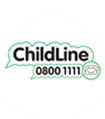GCSE Religious Education Years 10 & 11
Specification
AQA - The specification and assessment structure can be found at the link: https://www.aqa.org.uk/subjects/religious-studies/gcse/religious-studies-a-8062
What will I study?
The GCSE Religious Studies content comprises of the following components:
- The study of two major world religions
- The study of four historical and contemporary themes which have a philosophical and ethical focus
Component 1: The study of religions: beliefs, teachings and practices
Section A: Beliefs and practices of Christianity
Section B: Beliefs and practices of Buddhism
Component 2: Thematic studies
Theme C: The existence of God and revelation
Theme D: Religion, peace and conflict.
Theme E: Religion, crime and punishment.
Theme F: Religion, human rights and social justice.
What skills and qualities are required?
- An open and inquisitive mind
- Good written and oral communication skills
- Independent learning and research skills
- Logical thinking and decision-making
- Analytical skills
- Evaluative skills
How will I learn?
You will learn in a variety of ways, including formal lessons, research work, interactive tasks, student presentations, discussion and debating, skills work and enquiry work. There are also extensive opportunities to explore current affairs literature.
How will I be assessed?
Both component 1 and component 2 will be assessed by written examination at the end of year 11. The exams are both 1 hour 45 minutes long and are worth 96 marks each.
Where could it lead?
Employers and universities value Religious Studies, Philosophy and Ethics as it provides students with a wide range of useful skills and an understanding of the world in which they live. Employers and universities alike will appreciate the variety of transferable skills provided through study of the subject, chiefly the ability to think critically, analyse, and evaluate ideas, issues and texts to a high level. Theology and Religious Studies graduates are to be found working in a wide range of jobs from law, public relations, business, politics, media, journalism, teaching and social work but like all arts subjects, the subject’s transferable skills open up a whole host of opportunities.
Additional Requirements/Information
The syllabus builds on Key Stage 3 and lays a foundation for advanced study.
Year 10
| Topic | Further details about the topic | Skills | |
|---|---|---|---|
| Autumn Term | |||
| 1 | Christian beliefs | Nature of God; the Trinity; creation; the afterlife; the incarnation; Jesus as the Son of God; the crucifixion; the resurrection; the ascension; sin; atonement and salvation. | AO1: Demonstrate knowledge and understanding of Christian belief. AO2: Analyse and evaluate aspects of Christian beliefs, including its significance and influence. |
| 2 | Buddhist beliefs | The life of Buddha; the path to Enlightenment; the Buddha’s teachings; Samsara; the three marks of existence; the Four Noble Truths; the Noble Eightfold Path; destiny. | AO1: Demonstrate knowledge and understanding of Buddhist beliefs. AO2: Analyse and evaluate aspects of Buddhist beliefs, including its significance and influence. |
| Spring Term | |||
| 1 | Christian practices | Worship; the sacraments; pilgrimage; festivals; the role of the church; mission and evangelism; the importance of the worldwide Church including working for reconciliation and how Christian churches respond to persecution; the work of overseas agencies and their response to global poverty. | AO1: Demonstrate knowledge and understanding of Christian practices. AO2: Analyse and evaluate aspects of Christian practices, including its significance and influence. |
| 2 | Buddhist practices | Worship; practices; meditation; festivals; ethical teachings; the five moral precepts; the six perceptions. | AO1: Demonstrate knowledge and understanding of Buddhist practices. AO2: Analyse and evaluate aspects of Buddhist beliefs, including its significance and influence. |
| Summer Term | |||
| 1 | Theme C: The Existence of God and Revelation | Different ideas about God; the design argument; the first cause argument; miracles; evil and suffering; general and special revelation. | AO1: Demonstrate knowledge and understanding of the theme AO2: Analyse and evaluate aspects of the theme. |
| 2 | Revision of Beliefs and Practices paper | AO1: Demonstrate knowledge and understanding AO2: Analyse and evaluate | |
Year 11
Religious, Philosophical and Ethical Themes: Contrasting religious beliefs are examined in Component 2.
| Topic | Further details about the topic | Skills | |
|---|---|---|---|
| Autumn Term | |||
| 1 | Theme D: Religion, peace and conflict | Forgiveness and reconciliation; terrorism; religion as a cause of war and violence; religious attitudes to war and peace; religious attitudes to nuclear weapons; peacekeeping and pacifism. | AO1: Demonstrate knowledge and understanding of the theme AO2: Analyse and evaluate aspects of the theme |
| 2 |
Theme E Religion, crime and punishment |
Different types of crime; causes of crime; good and evil; the aims of punishment; suffering and religious attitudes to it; the treatment of criminals; prisons; different types of punishment including, community service and capital punishment | AO1: Demonstrate knowledge and understanding of the theme AO2: Analyse and evaluate aspects of the theme. |
| Spring Term | |||
| 1 | Theme F: Religion, human rights and social justice. |
Human rights; Freedom of religion and belief; prejudice; racism; the law; religious attitudes to wealth; causes of poverty; people trafficking. |
AO1: Demonstrate knowledge and understanding of the theme AO2: Analyse and evaluate aspects of the theme. |
| 2 | Revision | Revision
|
AO1: Demonstrate knowledge and understanding of religious beliefs and practices (Christianity and Buddhism) and the four themes C-F. AO2: Analyse and evaluate aspects of the beliefs and practices of Christianity and Buddhism and the four themes C-F.
|
| Summer Term | |||
| 1 | Revision | Revision | AO1: Demonstrate knowledge and understanding of religious beliefs and practices (Christianity and Buddhism) and the four themes C-F. AO2: Analyse and evaluate aspects of the beliefs and practices of Christianity and Buddhism and the four themes C-F. |
Assessments
| Resources | Topic | Type of assessment |
|---|---|---|
| CAT 1 | Component 1: The study of religions: beliefs - Christianity and Buddhism | Past paper Religious Studies A (8062) – Full course GCSE |
| CAT 2 | Component 1: The study of religions: practices – Christianity and Buddhism | Past paper Religious Studies A (8062) – Full course GCSE |
| CAT 3 | End of Year Exam – All Year 10 Content | End of Year Examination |
| CAT 4 | Component 2: Thematic studies (C and D) | Past paper Religious Studies A (8062) – Full course GCSE |
| CAT 5 | Mock examination | Past paper Religious Studies A (8062) – Full course GCSE |
| CAT 6 | GCSE component 1 and component 2 | End of Year Examination |
Main Resources
| Resource | Details | Term |
|---|---|---|
| Text books |
AQA GCSE (9-1) Religious Studies Specification A Authors: Jan Hayes |
All |
| Recommended Reading |
Kings James or NIV version Bible – Gospel according to Mark Christianity a very short Introduction by Linda Woodhead ‘What is Christianity?’ by Rowan Williams ‘God is Not One’, by Stephen Prothero ‘Is There A God?’ by Richard Swinburne |
All |
| Recommended websites |
RE:Quest - the definitive toolkit Christianity in R.E. - http://www.request.org.uk/ BBC – Bitesize – AQA – Christianity https://www.bbc.co.uk/bitesize/topics/zbndy9q BBC – Bitesize – AQA –Buddhism https://www.bbc.co.uk/bitesize/topics/zfxchbk RE:Online - http://www.reonline.org.uk/ Truetube - helpful video clips |







